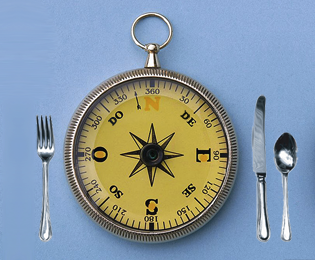 [elizabeth d. herman for the ny times]The world has turned a watchful eye to food and the people who cook it. Now more than ever, food cultures thrive like mother starters and chefs/restaurateurs with solo projects are a dying breed. The guys from Battersby are expanding, Alex Stupak cooks some of the city's best Mexican in two different neighborhoods, and while Danny Bowien's business model thrives on two coasts, chefs like Mario Batali and Michael White seem to be chasing world domination. As chefs grow their restaurant empires, and grow them they will, it gives New York Times restaurant critic Pete Wells plenty to eat, but might come at the cost of a diluted vision.
[elizabeth d. herman for the ny times]The world has turned a watchful eye to food and the people who cook it. Now more than ever, food cultures thrive like mother starters and chefs/restaurateurs with solo projects are a dying breed. The guys from Battersby are expanding, Alex Stupak cooks some of the city's best Mexican in two different neighborhoods, and while Danny Bowien's business model thrives on two coasts, chefs like Mario Batali and Michael White seem to be chasing world domination. As chefs grow their restaurant empires, and grow them they will, it gives New York Times restaurant critic Pete Wells plenty to eat, but might come at the cost of a diluted vision.
Wells took the forth star away from Daniel recently and hinted that it was due, in large part, to the idea that Daniel Boulud might be spreading himself thin. With a global empire that includes seven restaurants in New York, Boulud's task to maintain perfection at Daniel, his flagship, is exponentially more difficult with so many cooks in the kitchen.
The same might be said of today's review, in which Wells files on Costata, Michael White's return to 206 Spring Street where he started cooking in New York more than a decade ago. Costata, like the Elm and the Marrow, seemed to us as a concept that was chasing three New York Times stars. The Marrow fell two short, we patiently await Wells' thoughts on the Elm, and find Costata coming up one star shy.
"All those Foreigner and Stone Temple Pilots songs aren’t helping to set the mood," Wells writes, even though the loud rock thing worked for Babbo in 2004 when Frank Bruni awarded the restaurant three stars. Wells isn't a fan of the decor, a facet of the restaurant Adam Platt focused on for 80% of his short-winded review of Costata recently. Wells comments on "flame-shaped light bulbs programmed to flicker on and off." To Costata's defense, there's little else you can do without an open flame permit. But enough about that. On to the food.
Wells loves the pasta, "For a minute, we’re wondering if he’s laying it on a bit thick, showering shredded fontina over the oxtail ragù with cavatelli," he writes. "Then we take another bite and decide that when somebody makes pasta as wonderful as this, there are some questions you just don’t ask."
Pointing to a couple of the entrees, the critic writes, "Some of these dishes have a coarseness that wasn’t there when we first met," referring to White's time spent at Convivio and Alto before imploding with his Altamarea Group. Since the group's inception, Michael White's (exceptional) cooking and ensuing success has spawned projects in Hong Kong, London, New Jersey and New York, where he has opened six restaurants, three of which this year alone.
Few do it better than Michael White, and when a chef of his calibar falls short of the third star, it solidifies what we wrote about two weeks ago – two is the new three – and brings us to this question: If Costata were a standalone concept, or even White's second or third restaurant, would the likelihood of a three-star review be higher? [NYTimes]
 Friday, August 16, 2013 at 2:28PM
Friday, August 16, 2013 at 2:28PM  Donde Dinner? wants to make your next dining experience an adventure. So, every Friday, we pick a restaurant and post its address for you. The catch is, that's all the information you get. No name, no type of cuisine, and no Googling. But first, here's last week's address:
Donde Dinner? wants to make your next dining experience an adventure. So, every Friday, we pick a restaurant and post its address for you. The catch is, that's all the information you get. No name, no type of cuisine, and no Googling. But first, here's last week's address: Donde Dinner?,
Donde Dinner?,  cafe nadery
cafe nadery 
